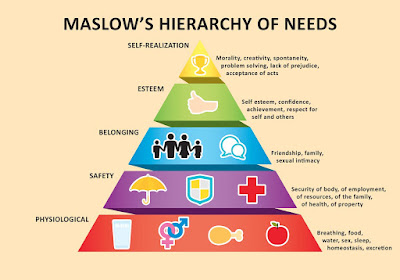personality is a stable, organized collection of psychological traits and mechanisms in the human being that influences his or her interactions with and modifications to the psychological, social and physical environment surrounding them ( by the American psychologists Randy Larsen and David Buss).Personality has been studied for hundreds of years and several models are commonly used to help us ‘predict’ the likelihood of certain behaviors occurring.Our personalities interact with our environment so at any moment in time, we are a product of our personalities and our perceptions.A commonly used personality model that is useful for personal trainers is known as the ‘DISC’ personality model.
DISC is a personality model based on the work of psychologist William Marston. Marston found that observable behavioral characteristics can be grouped into four major personality types. Each behavioral type tends to exhibit specific characteristics.

DISC itself is purely an acronym for the four personality types which are:
- Dominance – which relates to control, power and assertiveness
- Influence – which relates to social situations and communication
- Steadiness – which relates to patience, persistence, and thoughtfulness
- Compliance – which relates to structure and organisation
Characteristics of the four Personality types
Dominance

People who score high on the ‘D’ type factors enjoy dealing with problems and challenges. These people will often be described as demanding, forceful, egocentric, strong willed, determined, aggressive, ambitious and pioneering. High ‘D’ people are often found in leadership positions, this doesn’t mean they are ‘good’ leaders as their weaknesses often include being poor listeners, and being impatient and insensitive to others. ‘D’ type people are bottom-line people who hate to waste time. They want straight talk and direct answers to their "WHAT" questions
Influence

People who score high on the ‘I’ type factors influence others through talking and activity and tend to be emotional. They are commonly described as enthusiastic, magnetic, persuasive, warm, trusting, demonstrative and optimistic.They like people and thrive in a social scene. It’s important that others have a favourable impression of them. Indeed high ‘I’ people are more interested in people than in accomplishing tasks. Time does tend to get away from them and everything takes a lower priority when they're discussing ideas. They believe everything will be all right and everyone is ‘such a nice person’.They need freedom of expression; they can become easily distracted as they have trouble staying focused. They tend to think in the future. They want answers to their "WHO" questions.
Steadiness

High ‘S’ people do not like sudden change, they like a steady pace and security. These people are calm, relaxed, patient, predictable, deliberate, stable, consistent and can tend to be unemotional and poker faced. Steady people get along well with others because they are flexible in their attitude. They may not say anything if they disagree because they like to keep the peace. They like to help others and make good counsellors as they are great listeners. Steady people like to maintain familiar and predictable patterns. If they receive appreciation, they maintain a high level of performance. They like to feel comfortable with anything new before actually starting it.Steady people will want answers to their "HOW" and "WHEN" questions.
Compliance

(This category is also known as ‘Cautious’ or ‘Conscientious’) People who score high on the ‘C’ type adhere to rules, regulations and structure. They like to do things well and do them well first time. They are slow paced and task oriented.High ‘C’ people are commonly described as careful, cautious, neat, systematic, accurate, and diplomatic. Perfection is very important to ‘C’ people, and they tend to be critical of themselves. They will study privately to learn about a subject before discussing it in public.People can find it difficult to read high ‘C’s as they don't show their feelings. They tend to protect their privacy. They make to-do lists. Compliant people want answers to their "WHY" and "HOW" questions.
Adapting your behavior to suit personality types
With Dominant people
·
Build respect to avoid conflict
·
Focus on facts and ideas rather than people
·
Have evidence to support your ideas and advice
·
Be quick, focused and get to the point
·
Ask 'what' not 'how'
·
Talk about how problems will hinder accomplishments
·
Show them how they can succeed
|
With Influential people
·
Be social and friendly with them
·
Listen to them talk about their ideas
·
Help them find ways to translate the talk into useful
action
·
Don’t spend too much time on the details
·
Motivate them to follow through to complete tasks
·
Recognize their accomplishments
|
With Steady people
·
Be genuinely interested in them
·
Create a human working environment for them
·
Give them time to adjust to change
·
Clearly define goals for them and provide ongoing
support
·
Recognise and appreciate their achievements
·
Avoid hurry and pressure
·
Present new ideas carefully
|
With Compliant people
·
Warn them before and generally avoid surprises
·
Be well prepared. Don't ad-lib with them if you can
help it
·
Be logical, accurate and use clear data
·
Show how things fit into the bigger picture
·
Be specific in disagreement and focus on the facts
·
Be patient, persistent and diplomatic
|
DM MacKay - Bulletin of the British Society for the History of Science, 1951 - cambridge.org -
- ,
- ,
- Husameddin Dawoud 2017 - The impact of personality traits on users’ information-seeking behavior






